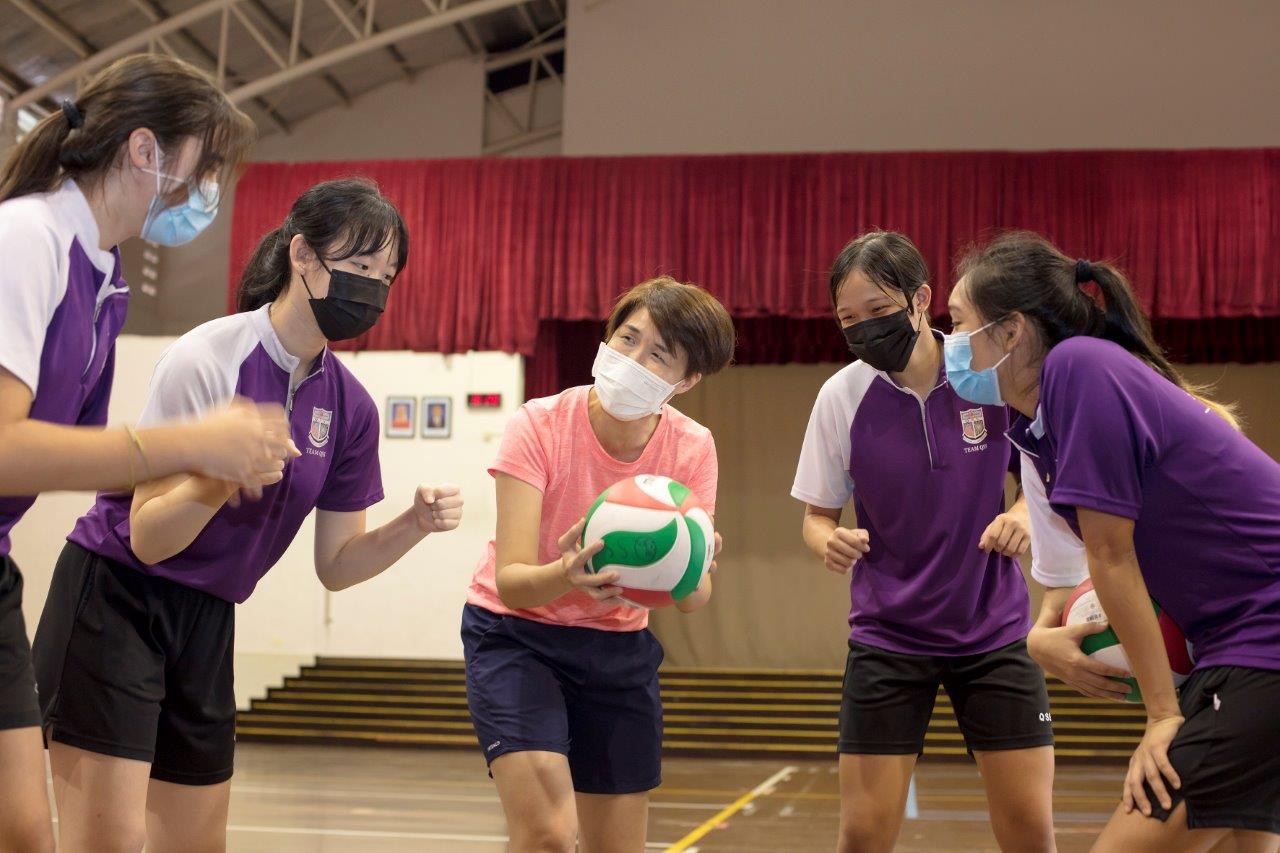Experiential learning or learning by doing through Outdoor Education is one of the best teaching tools for our students.
With increasing exposure to information through technology, our students are becoming less active and do not develop relationships with self, others and the environment. Outdoor Education does not only promote physical development in students but it also focuses on each of their personal, social and self-awareness development.
That is what the Outdoor Education Programme (OEP) at Marymount Convent School aims to do as it enhances students’ social-emotional learning and at the same time, instils confidence and independence in students.
The highlight of Marymount’s OEP programme is the adventure camp that helps students to grow in perseverance and courage as they tackle challenges and obstacles such as making their own raft to glide their way across a pool and taking a ride down a 450 m long “Megazip” zip-line at 60 km/h.
The adventure camp provides an opportunity for the students to learn more about basic survival skills, respect and responsibility for self, others and environmental awareness. They also get to build their leadership skills, emotional and physical strength as they learn how to work in teams through activities like hiking, kayaking and other active games. Mrs Ng Soh Lan, Head of Department for Physical Education and Co-Curricular Activities, says her proudest moment during the camps was seeing her students encouraging each other to take on and overcoming challenges. Their social development flourished as they engaged together in hands-on learning and adventure.
Building Leadership Qualities And Learning To Persevere
For the energetic ones, like Sofia-Jane Wong Enqi, the activities in OEP are a dream come true. She loves activities such as trekking, high element course and team-building activities. During trekking, the primary 6 student learned the value of cooperation instead of competition. A coach had told her, “There shouldn’t be too many people giving out instructions,” and she discovered for herself how easy it was for her teammates to complete challenges when people are not fighting to take the lead but instead they stopped and listened to each other.
Another primary 6 student, Mithra Anandan, derived an even greater benefit while hiking. Due to asthma, she had never been very interested in physical activities but as she joined her friends on a hike, she learned to persevere despite having to stop for breaks.
Working hard to reach the end of the hike taught her the value of resilience even if others can go farther or faster. It is not about a race, it is about a completing and enjoying a journey. Since that day, Mithra says: “I have transformed from a non-active girl to one who loves adventure and that is a very big change!”
Both girls learned to value the support of the new friends they made and to give support in return, cheering on their classmates throughout the activities. Physical activities and outdoor fun aside, they valued the experience of learning how to read a map, thinking out of the box for survival skills, cooking, rock climbing, and other diverse experiences which does not happen in a classroom environment. They felt that they have expanded their skill sets and matured them through lessons of self-discipline, decision-making, and self-confidence.
Their parents also observed clear improvements in their children’s self-management and responsibility. “My parents praised me about my positive change in character and of course, I had burnt a good amount of calories!” says Mithra laughingly. Sofia-Jane adds: “Days after returning from the camp, my mom said that I became more independent, cleaning after my meals and did my homework without being reminded. It was truly an enriching experience, my friends and I want to do the outdoor camps over and over again. We don’t even miss our mobile phones!”
Outdoor camps sound like hard work to some students and even parents as they have to let their child go and experience a different environment. But being outdoors is more than just physical and fun activities, it actually helps students to grow in their personal capacity, strengthen their self-awareness, compassion and expand their life experience. When students see and experience their personal strengths, resilience is fostered.



.jpg)
.jpg)

